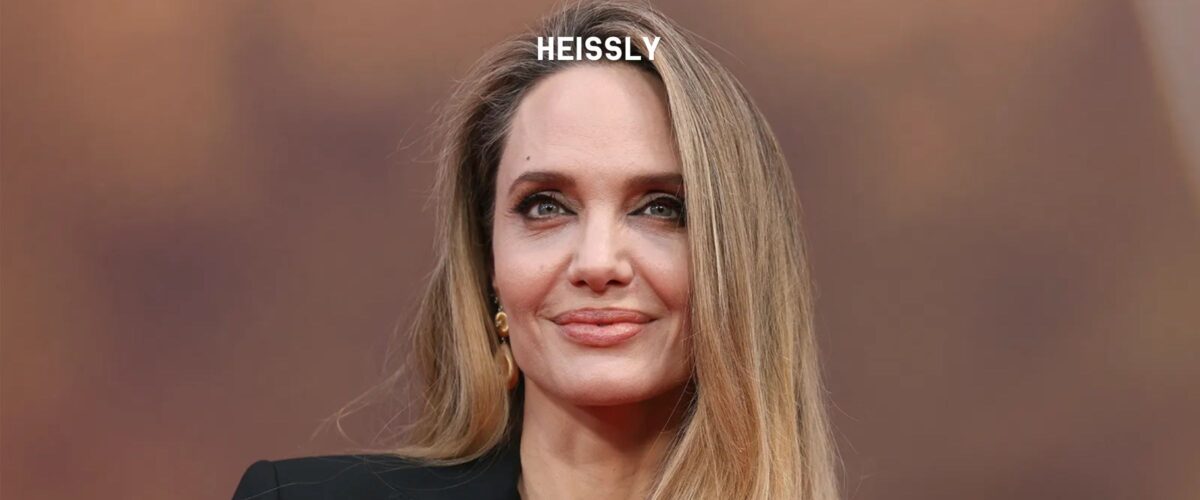Angelina Jolie Says She No Longer Recognizes America: A Stark Warning or Celebrity Outburst?
In a candid and powerful statement, Academy Award-winning actress, humanitarian, and former UN Goodwill Ambassador Angelina Jolie made headlines when she admitted that she no longer recognizes the United States under former President Donald Trump’s leadership.
“I love my country, but I don’t, at this time, recognize my country… anything anywhere that divides or, of course, limits personal expressions and freedoms, and from anyone, I think, is very dangerous.”
With these words, Jolie added her voice to the many public figures who have expressed concern over the social, political, and cultural shifts seen during Trump’s presidency. But is her statement simply the opinion of another Hollywood liberal—or does it reflect a deeper sentiment felt by many Americans?
Let’s unpack what she said, why it matters, and what it tells us about the broader national conversation.
🔍 What Did Angelina Jolie Really Say?
Jolie’s comments weren’t made in passing—they were part of a broader discussion on freedom, division, and the political climate in America. Unlike some celebrities who issue vague criticisms or flippant jabs, Jolie’s tone was measured, serious, and deeply personal.
She emphasized freedom of expression and personal liberty as cornerstones of the American identity, and warned that any effort to curb those freedoms—whether through legislation, rhetoric, or cultural pressure—poses a real danger.
“These are such serious times that we have to be careful not to say things casually.”
Jolie wasn’t just referring to Trump alone, but to the entire climate of division and polarization that intensified during his administration. However, she did call attention to how Trump’s leadership style and messaging may have exacerbated these issues.
🌍 A Global Perspective: Why Jolie’s Voice Matters
Angelina Jolie isn’t just a movie star. She’s spent years working with the United Nations on refugee crises, global conflict, women’s rights, and freedom of speech. Her global humanitarian work gives her a unique lens to view American politics—not from the insulated bubble of Hollywood, but from the front lines of human rights struggles around the world.
In many ways, Jolie has acted more like a diplomat than a celebrity, often choosing her words carefully, avoiding cheap political shots, and focusing on principles rather than partisanship.
That makes her warning more chilling.
When someone who has worked in war-torn regions, spoken with survivors of dictatorship and oppression, and seen the fragility of freedom in the world says she doesn’t recognize her own country—it’s a red flag.
🇺🇸 Divided States of America: Is She Right?
Whether or not you agree with Jolie politically, it’s hard to deny that the U.S. has become increasingly polarized. Under the Trump administration, divisive rhetoric became a norm, and Americans found themselves more split along ideological lines than at any point in recent history.
-
Trust in media hit historic lows.
-
Partisan violence became more visible.
-
Protests erupted over racial justice, immigration, and policing.
-
The January 6th Capitol riot shook the world’s perception of American democracy.
Jolie’s concern is not isolated—it echoes the feelings of many Americans who have felt alienated or even threatened by political shifts they believe undermine democratic values.
🎭 Hollywood and Politics: Useful Voices or Out of Touch?
Critics are quick to dismiss celebrities who weigh in on politics. “They should stick to acting,” the common refrain goes. But why?
If business leaders, athletes, and influencers are allowed to express political opinions, why not actors—especially ones like Jolie, who have dedicated years to real-world causes?
The truth is, public figures have powerful platforms, and whether you agree with them or not, they shape conversations. Jolie has often used hers to raise awareness of issues that go far beyond Hollywood red carpets.
Still, there’s a legitimate question to ask: Does celebrity activism help or hurt the cause of unity?
Some argue it furthers division—fueling the perception of a coastal elite lecturing everyday Americans. Others believe that when well-informed public figures speak up, it helps bring critical issues to mainstream attention.
⚖️ Freedom of Speech—For Everyone?
Ironically, Jolie’s comments about freedom of expression might also apply to those who disagree with her. If freedom is truly to be protected, it must be preserved for people of all viewpoints, not just the popular or politically correct ones.
The challenge America faces today is how to uphold diverse ideas while still fostering civility, accountability, and truth.
That means protecting the right of a movie star to speak out just as fiercely as it protects the right of a farmer, a teacher, or a truck driver.
💬 Final Thoughts: Is Jolie Right to Be Worried?
Angelina Jolie’s warning may sound dramatic to some, but for others, it echoes a growing fear: that America’s identity is shifting in ways that threaten its foundational values.
Her comments aren’t about party politics, but about principle. About what kind of country America is—and wants to be.
As the U.S. continues to grapple with questions of freedom, identity, and unity, it’s important to listen to all voices, especially those that challenge us to think deeper.
Whether or not you agree with her, Jolie’s message is clear:
“We have to be careful not to say things casually.”
Because the stakes are too high.
🗣️ What Do You Think?
Do you agree with Angelina Jolie’s assessment of America? Or do you think she’s out of touch with reality?
Let us know in the comments—or better yet, start a respectful conversation with someone who disagrees.
Freedom of expression, after all, starts with listening.
